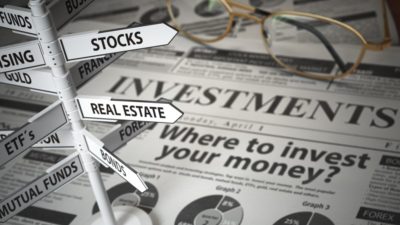A market crash can be a scary thing to see, let alone experience personally. It can lead to a dramatic swing in one’s paper wealth and a sudden change in how investors see the prospects of some or even most companies.
When markets nosedive – even if only briefly – I think it can be useful to learn from how top investors manage their psychology.
Focus on long-term value
Warren Buffett imagines the market as an individual, Mr Market. He learnt this approach from investment guru Benjamin Graham. Basically, every day Mr Market offers a price at which he is willing to buy or sell shares. If I want to buy or sell at that price, I can. Otherwise I can ignore it. Indeed, Buffett has said that if the stock market closed for years and Mr Market was no longer busy each day offering prices, it would not bother him.
That is because Buffett and Graham reckon that in the end, value will out itself. If I invest in high-quality companies at attractive prices, on this view, then their value ought to be the same even if Mr Market suddenly marks them down or up. That is why Graham said: “In the short run, the market is a voting machine but in the long run it is a weighing machine”. It can be hard to ignore the temptations of following short-term shifts in share prices. Indeed, they can sometimes provide incredible windows of opportunity. But top investors like Buffett ignore the market noise during a crash – and indeed a bubble – and keep laser-focused on long-term value.
Preparing for a market crash
Top investors are never surprised that the market crashes, although they may be caught off guard by the timing. That is because they understand that markets are cyclical, so over the course of time they move up and down.
A market moving down rapidly can present a great buying opportunity. For example, the shares in ExxonMobil I bought when the market slumped in 2020 have more than doubled in value. But such windows of opportunity can be short-lived. That is why top investors often have a shopping list of companies they regard as potentially great investments at the right price. That way, if there is a sudden market crash, they can stay calm and act immediately.
Learn the lessons
No matter how well-prepared one is for a market crash, it can still be a difficult time. Even with a portfolio of companies chosen for their long-term potential, a crash can destroy a lot of value. The Japanese Nikkei index hit an all-time high late in 1989. After a serious market crash, it is yet to reach those levels again more than three decades later.
One positive thing about a market crash is that it is a valuable learning opportunity, albeit sometimes a costly one. Taking time after a crash to take stock of what one has learned can help improve future performance. No two investors are exactly the same, so I find it helpful to do this specifically with regard to my own portfolio. Hopefully that way I can turn the pain of the last market crash into my advantage as an investor when the next one arrives.







